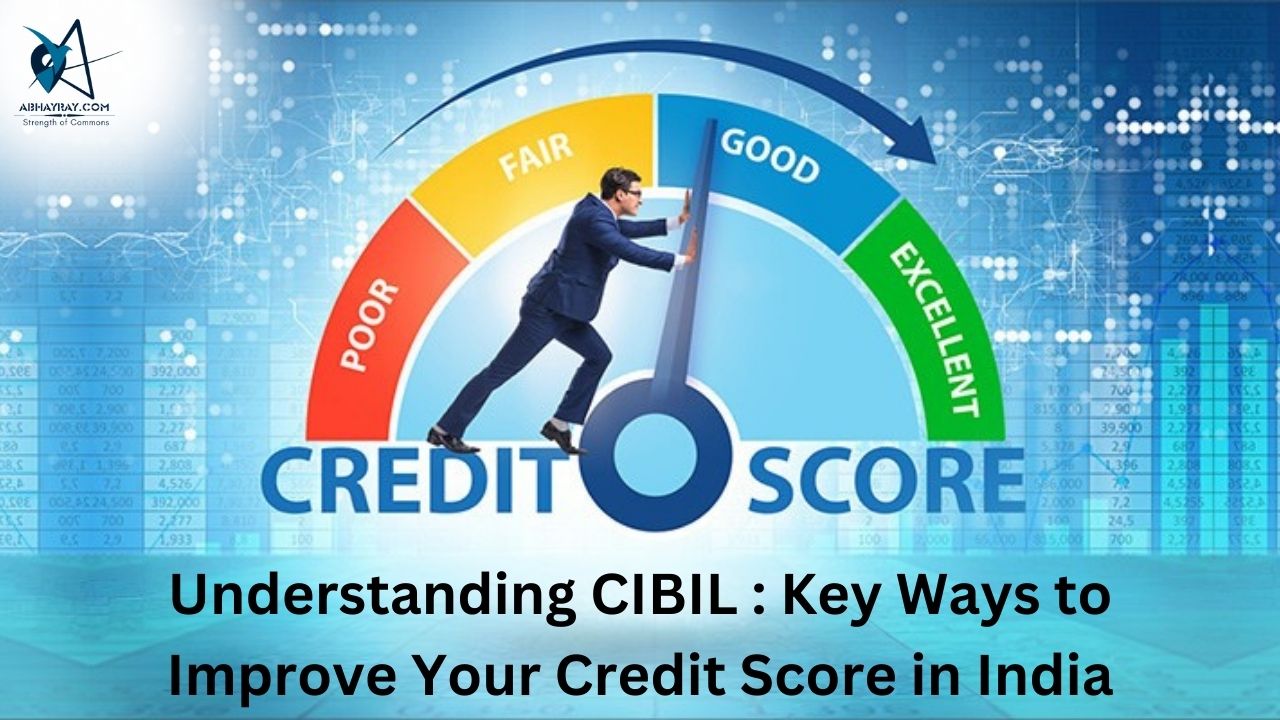Introduction
CIBIL score plays a crucial role in assessing an individual’s creditworthiness and eligibility for financial services. A favourable score facilitates access to more favourable loan conditions, reduced interest rates, and expanded credit opportunities. Through the adoption of responsible financial practices and the application of strategic credit management strategies, individuals can enhance their CIBIL score, thereby optimising their credit profile and reaping the advantages associated with a robust credit standing.
CIBIL Score
CIBIL stands for Credit Information Bureau (India) Limited. CIBIL score is the rating assigned to people with a banking history by credit reporting companies in India. This data is shared with financial institutions to help them understand the creditworthiness of a borrower. Banks use this information to understand the probability of defaults and a borrower’s ability to repay his debt.
Factors Affecting CIBIL Score
Credit information companies use the following data to arrive at your credit score :
- Closed accounts
- Settled accounts
- Written-off accounts
- Days past due (DPDs)
- Enquiry
- High credit
- Past and current residential and office addresses
- Opening and closing dates of loans
- Ownership status (single/joint/guarantor)
- Liability type (loan/credit card)
CIBIL Score Range
Based on your creditworthiness, credit reporting companies may assign you one of the following scores :
- CIBIL score of 700 + : A score above 700 is considered a no-risk zone for the financial institution. This means that the lender will be willing to offer you the loan at their lowest interest rates. Note that 79% of loans are sanctioned to borrowers with a score higher than 750.
- CIBIL score between 600 and 700 : Lenders will be willing to offer loans to a person with a score in this range, which is a less risky zone. You may, however, have to pay a higher interest than those with a better score.
- CIBIL score of 300 – 600 : A person with this credit score is considered to be in a risky zone. Banks shy away from funding people in this category.
- CIBIL score 1 – 5 : This credit score is assigned to people with less than six months of credit history.
- -1 credit score : This credit score is assigned to people with no credit history. It is associated with first-time borrowers with no loan or credit in their names.
Ways to Improve your Credit Score
Here, we share some of the best ways on how to increase your credit score.
- Maintain Healthy Credit
Consistent use and timely repayment of credit are essential. This behaviour demonstrates reliability and responsibility to potential lenders, thereby positively influencing the credit score.
- Avoid Being a Guarantor
Serving as a guarantor can be risky, as the primary borrower’s default will adversely affect your credit score. It is advisable to agree to such arrangements only if you are certain of the borrower’s financial stability and repayment capacity.
- Avoid Acquiring Multiple Loans
Applying for multiple loans within a short time frame can be perceived as a sign of financial instability by lenders, which may result in a lower credit score.
- Increase Your Credit Limit
By obtaining a higher credit card limit while maintaining the same level of expenditure, you can lower your credit utilisation ratio. This lower ratio will gradually lead to an improved credit score.
- Maintain the Credit Card Ratio
It is crucial to do a credit score check and know its limitations. It is recommended to keep your credit utilisation below 30% of your available credit limit. This practice signals responsible credit management to lenders.
- Repay Your Dues Promptly
It is crucial to make timely payments for your credit card bills and loan EMIs. Delinquent payments are a major detriment to one’s credit score.
- Monitor Your Credit Card Activity
Regular review of credit card statements and credit reports can help identify errors or unauthorised transactions that may harm your credit score. Prompt action on any discrepancies is vital.
- Limit Applications for New Credit
Each credit inquiry can marginally reduce your score. Hence, it is important to limit the number of new credit applications to maintain a stable credit score.
- Ensure Timely Repayments
Consistently repaying credit obligations on time is one of the most critical factors in maintaining and improving a credit score.
- Opt for Longer Loan Tenures
Choosing a longer loan tenure can reduce the monthly repayment burden, making it easier to meet repayment obligations on time. Although this means paying more interest over the life of the loan, it helps maintain a good credit history.
By adhering to these strategies, individuals can effectively improve and sustain a high CIBIL score, thereby enhancing their creditworthiness and access to financial products.
How Long Does It Take to Improve a Credit Score ?
People often enquire, ‘How to improve credit score fast?’ Improving a credit score typically takes around 4 to 12 months, depending on the severity of past credit issues and the consistency of positive credit behaviours. Regular on-time payments, reduced credit utilisation, and prudent management of new credit applications contribute to gradual improvement. Major derogatory marks, like defaults or bankruptcies, may take longer to mitigate. Persistent efforts and responsible credit practices are essential for sustained improvement and maintaining a high credit score over time.
Conclusion
So, those who seek to increase their credit score, especially in India, can look at the above discussion. Improving one’s CIBIL score is a strategic endeavour requiring disciplined financial habits and responsible credit management. By diligently adhering to practices such as timely repayment of dues, maintaining a healthy credit utilisation ratio, and monitoring credit activity for errors, individuals can steadily improve their creditworthiness. While the timeline for improvement varies, consistent adherence to these strategies over time is key to achieving a higher CIBIL score and accessing better financial opportunities.
GMICapitals.com RaysVeda.com GetMyStartup.com LawCanal.com GetMyIndia.com ZinCob.com Angeltors.com

